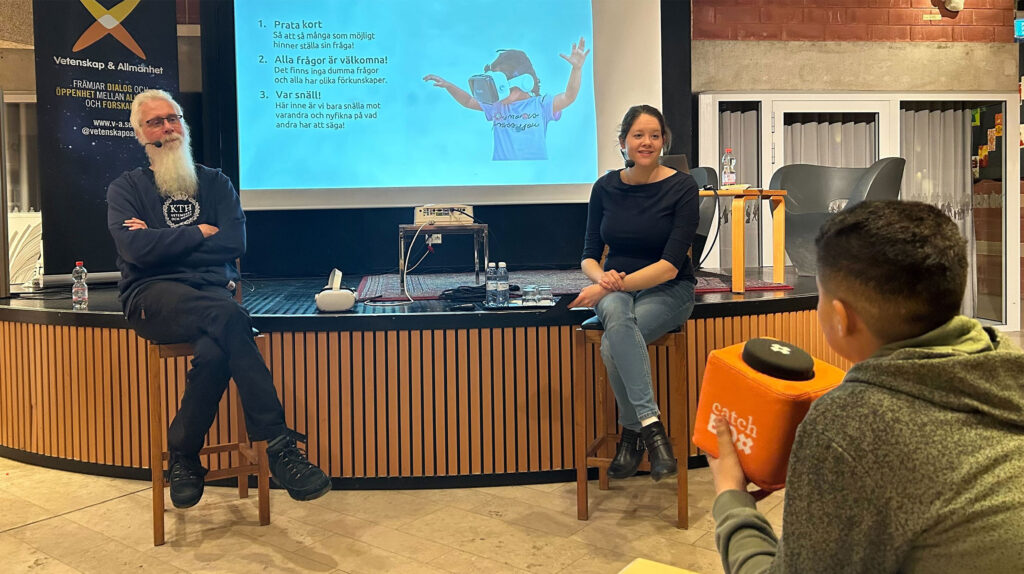VR, AR and XR… navigating through a new technological landscape is not entirely easy. On 15 February VA (Public & Science) organised a science café at Hallunda Folkets Hus, a cultural centre in Botkyrka, to explore the future development of these digital extended reality technologies and their societal implications.

Björn Thuresson, a researcher and Director of the Visualization Studio at KTH Royal Institute of Technology in Stockholm, introduced the evening’s topic with an overview of how Virtual Reality (VR) and Augmented Reality (AR) work and the direction in which these technologies are heading. Over refreshments, twenty participants of all ages then joined the discussion with their own thoughts, questions and reflections.
Questions around personal data
Almost all of the participants had heard of VR and several had tried out the technology before. The microphone was passed around among the audience, who asked questions about possible uses and applications of VR technology, as well as about VR’s impact on society and humans.
One participant suggested that VR could be used in nursing homes by people who are no longer able to physically travel but would like to visit new places. Another raised the environmental impact of digital technologies as a challenge, which led to a discussion about the importance of having robust regulations and transparency in the technology’s production chains. In addition, the question of who controls the VR technology was discussed. How can we ensure that the technology does not collect sensitive information about us, its users?
Future societal implications
Towards the end, the participants were asked whether they believed that this kind of discussion would taking place in ten years’ time in a virtual environment using digital avatars. Several were enthusiastic about the prospect and thought that new technology is an inevitable part of society’s development, which we should embrace and make the most of. Others thought consideration needed to be given to how we integrate new technologies into our lives. A few commented on how our attitudes towards digital technologies are changing and that we will may increasingly restrict how we share our data in the future.
Afterwards, everyone had the opportunity to try out VR equipment themselves and chat further.
The science café was organised as part of the EU project TechEthos, a project exploring the ethics of new and emerging technologies with high socio-economic impact. The science cafe was moderated by Lena Söderström, a Project Manager at VA (Public & Science).
